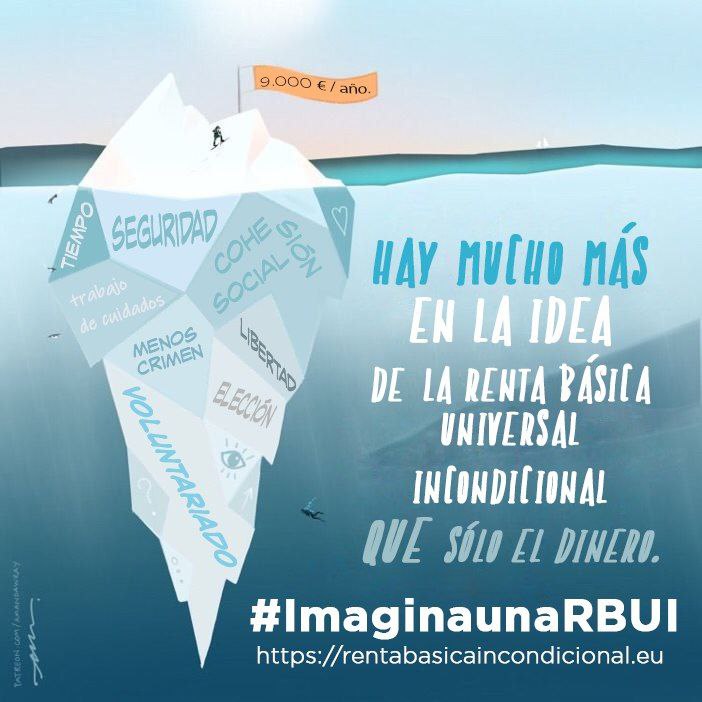One of the most controversial aspects when talking about Universal and Unconditional Basic Income is its universality. Many people, even from progressive ideologies, do not agree that wealthy people should receive the Unconditional Basic Income.
EUREKA
By UNIVERSALITY we mean that a right is extended to all human beings by virtue of the fact that they are human beings, without any other characteristic or condition.
Throughout history, some rights have been extended to the entire population, such as the right to vote, education and health, although these are not always fully realised.
A recent example of universality in Europe is the National Health Systems. In fact, it is their star feature, as numerous studies have shown that improving access to health services for the entire population, i.e. the working classes (as the upper classes already enjoyed it privately and at the expense of the health of the majority of the population), improved the health of society as a whole, because for individual wellbeing to exist, other factors such as social, environmental, etc., must concur.
Recently, the COVID19 pandemic has shown us how interconnected societies and individuals, rich and poor, are. Historically, the great epidemics have shown the same thing.
This universality is problematic for this selfish system when it comes to granting all citizens an economic income that would provide a cushion to be able to decide about our lives and be freer. It would not stigmatise anyone for receiving it and would eliminate the poverty trap and the bureaucracy that conditional aid entails.
The system defends itself by creating opposing opinions, even using manipulation, so that the most vulnerable people, those who most need a Basic Income to live with dignity, will take a stand against it. This makes it even more difficult to defend a Universal and Unconditional Basic Income.
Universality helps to balance the scales, giving rights to the disenfranchised and demanding obligations from the privileged. Universality benefits the majority. If only the majority could see this clearly.
In relation to the RBUI, we at EUREKA defend that all people should have the right to sufficient economic resources to lead a dignified and independent life.
There is no dignified life if there is a lack of the necessary elements to live it.
These elements include achievements that have already been attained, -unequally depending on the country- thanks to the efforts of so many people and movements: health, education, social services and others that are close at hand, such as the right to housing, supplies, etc.
The RBUI would be one more of these elements, the right to have economic support, essential to be able to design one’s own life project, to decide how and with whom to live, what projects to carry out, what quests to pursue, what desires to fulfil.
The wealth accumulated by the capitalist elite required the subjugation of the majority of the population deprived of rights, the free work of women all over the world subjected to patriarchy, wars and colonialism, abusive living and working conditions and the promotion of individualistic and unsupportive values.
One per cent of the Spanish population accumulates 23 per cent of the total wealth. The richest 1% of the world’s wealthiest people accumulate 82% of global wealth. The big banks in Spain will earn between 28 and 38% more in 2022 than in 2021. The unemployment rate in Spain is 13%. Youth unemployment is close to 30%.
Wealth should and must be distributed. There is enough money to support all people if only a part of it is distributed. We believe that the Universality and Unconditionality of a Sufficient Basic Income, together with tax reform, are the way to achieve this.










